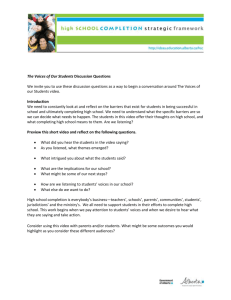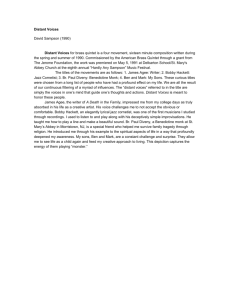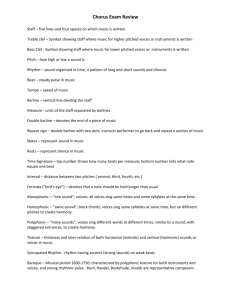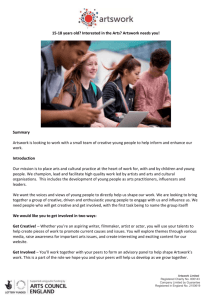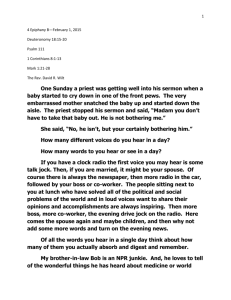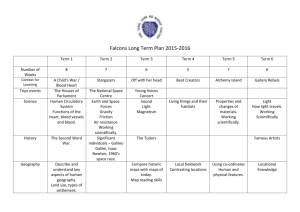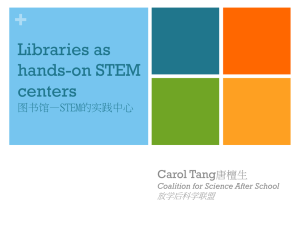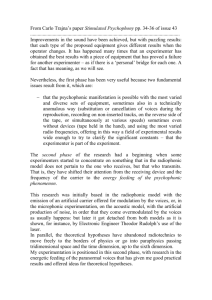5 Ways Zaner-Bloser`s Voices Literature and Writing Is Aligned with
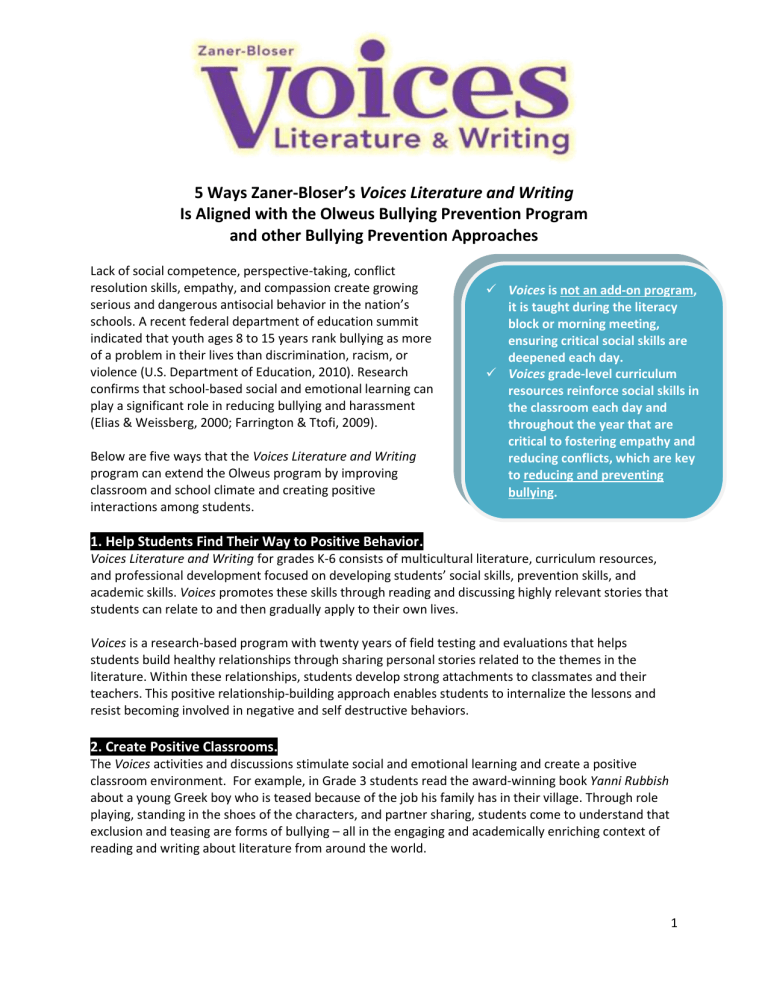
5 Ways Zaner-Bloser’s Voices Literature and Writing
Is Aligned with the Olweus Bullying Prevention Program and other Bullying Prevention Approaches
Lack of social competence, perspective-taking, conflict resolution skills, empathy, and compassion create growing serious and dangerous antisocial behavior in the nation’s schools. A recent federal department of education summit indicated that youth ages 8 to 15 years rank bullying as more of a problem in their lives than discrimination, racism, or violence (U.S. Department of Education, 2010). Research confirms that school-based social and emotional learning can play a significant role in reducing bullying and harassment
(Elias & Weissberg, 2000; Farrington & Ttofi, 2009).
Below are five ways that the Voices Literature and Writing program can extend the Olweus program by improving classroom and school climate and creating positive interactions among students.
Voices is not an add-on program, it is taught during the literacy block or morning meeting, ensuring critical social skills are deepened each day.
Voices grade-level curriculum resources reinforce social skills in the classroom each day and throughout the year that are critical to fostering empathy and reducing conflicts, which are key to reducing and preventing bullying.
1. Help Students Find Their Way to Positive Behavior.
Voices Literature and Writing for grades K-6 consists of multicultural literature, curriculum resources, and professional development focused on developing students’ social skills, prevention skills, and academic skills. Voices promotes these skills through reading and discussing highly relevant stories that students can relate to and then gradually apply to their own lives.
Voices is a research-based program with twenty years of field testing and evaluations that helps students build healthy relationships through sharing personal stories related to the themes in the literature. Within these relationships, students develop strong attachments to classmates and their teachers. This positive relationship-building approach enables students to internalize the lessons and resist becoming involved in negative and self destructive behaviors.
2. Create Positive Classrooms.
The Voices activities and discussions stimulate social and emotional learning and create a positive classroom environment. For example, in Grade 3 students read the award-winning book Yanni Rubbish about a young Greek boy who is teased because of the job his family has in their village. Through role playing, standing in the shoes of the characters, and partner sharing, students come to understand that exclusion and teasing are forms of bullying – all in the engaging and academically enriching context of reading and writing about literature from around the world.
1
3. Foster a Positive School Environment.
Voices can be implemented as a school-wide program, where all students are working on the same themes at the same time. Six universal themes anchor students to the curriculum. The year begins with students deepening their understanding of themselves and concludes with strengthening their commitments to our democratic society.
Theme 1: Identity Awareness in which students explore who they are and how to integrate the various parts of their lives into a healthy self-concept.
Theme 2: Perspective-taking where students learn to express their own points of view and to take the perspectives of both their peers and the characters from the literature selections.
Theme 3: Conflict Resolution, which builds on perspective-taking by teaching students ways to resolve conflicts with their peers and in society.
Theme 4: Family, Friends, and Community helps students learn about the importance of helping one another achieve important goals in their lives.
Theme 5: Social Awareness, in which students learn to foster relationships and begin to understand the pitfalls of stereotyping and prejudice.
Theme 6: Democracy, where students reflect and act upon their social responsibilities in a democratic society through community-service learning.
Schools can also use the Voices literature as part of a family reading program that brings the resources home and develops the same social skills at home as in the classroom. With a variety of positive activities that engage everyone, a school can create a positive culture that is friendly, safe and conducive to learning.
4. Provide Ongoing Support.
Professional development is a critical ingredient to build a positive school community. For example, our
A Focus on Anti-bullying Strategies workshop demonstrates activities that use carefully selected children’s literature to help students deal with issues of bullying, create a more positive classroom and/or school climate, and allow for greater academic achievement. Zaner-Bloser’s Professional
Development can also provide training and support for parents, counselors, and community members on how to use the Voices pedagogy and lessons to promote positive behavior and classrooms and to prevent negative behavior like bullying.
5. Research and Results.
Voices is an evidence-based method of developing students’ social skills and reducing problem behaviors and violence:
Voices was rated a top program by the Collaborative for Academic, Social, and Emotional Learning
(CASEL) from among hundreds of programs.
Voices was ranked as a top violence prevention program in the country by Drug Strategies, a nationally recognized organization that evaluates drug and violence prevention programs.
Case studies and evaluations in schools across the country show that Voices has a significant
effect on improving students’ social skills, reducing fights and suspensions, and improving literacy skills, particularly reading comprehension and writing.
For ordering information contact shannon.parker-hardee@zaner-bloser.com
843-263-6606 or amberly.lecoultre@zaner-bloser.com
404-668-4804
2
Seven Voices Instructional Strategies that Extend the Impact of the Olweus Bullying Prevention Program and Other Bullying Prevention Programs
At point of use within the Voices Literature and Writing Teacher Editions, there are multiple strategies and resources that help teachers address the needs of students in Olweus classrooms and schools.
1. Culturally Responsive Literature Provides Equal Access for All Students.
VLW utilizes the power of Teacher Read-Alouds to provide equal access for all students to the content of culturally-relevant literature, a developmentally appropriate approach which invites participation and helps promote perspective taking and other social skills.
For example, Voices literature and lessons can be used in classrooms as “read alouds,” in small groups through shared reading and partner activities, and in one-one-one interventions. Further, to enhance small group work and classroom instructional needs, the new Voices Leveled Library includes brief titles aligned with the six themes.
2. Perspective Taking Strategies.
Taking another person’s point of view is a “first step” social skill that lays the foundation for developing empathy and positive behavior.
Research shows that students who can take perspective are less likely to lean on aggression or violence.
In VLW, the carefully selected multicultural literature and social skills lessons that accompany it help students become aware that other points of view are valid and should be respected. Voices students learn these critical social skills by standing in the shoes of the characters of the stories they are reading and express their thoughts and feelings as if they were those people. Students can then extend this practice to their fellow classmates as their personal stories are shared.
For example, the 4 th grade Voices title Yang the Youngest and His Terrible Ear shows students how to accept other people’s values through a young boy who has immigrated to the United States from China who wants to play baseball instead of music. In one activity, students partner with each other to share ideas and write about what Yang’s best friend Matthew sees when he looks at the world through Yang’s eyes. (Sample response: He sees how important music is to Yang’s family; how difficult it is to start a new life where you don’t know anyone, can’t speak the language, and don’t know the customs.)
Teaching empathy, caring, and respect is particularly important for students who tease or bully others.
3
3. Problem Solving and Conflict Resolution Strategies.
In order to treat others respectfully and be able to deal peacefully with conflicts, students need first to be able to express themselves and coordinate different points of view.
For this reason, the Voices conflict resolution theme builds on the perspective taking activities in themes one and two. Students learn to identify different kinds of conflicts, how they escalate, how they can be de-escalated, how to use the ABC problemsolving method, and how to use different conflict resolution strategies. Students start by applying these strategies to conflicts in the books they are reading and then to real-life situations.
For example, Voices students read and discuss the award-winning story Amazing Grace, about a young girl who is told that she
The daily Voices thinking, discussion, and writing activities can help
“internalize” the weekly
Olweus content.
The combination of Olweus specifically targeting bullying behaviors/ incidents and Voices focused on social skills and prevention is a powerful approach to reducing teasing, bullying, and harassment. cannot play Peter Pan in the school play because she is a girl and she is black. In one recent classroom demonstration of a Voices perspective taking exercise, a young
Latino boy role played Grace, who is an African American girl, and was asked to analyze Grace’s conflict resolution choices while standing in her shoes.
One conflict resolution strategy Voices uses is the “ABC
Problem Solving Method,” which
Asks children to first identify the conflict, then to
Brainstorm possible solutions, and finally to
Choose the best solution to the conflict.
The Voices approach is embedded in a high interest story which gives students the opportunity to develop problem solving approaches in a comfortable setting.
4. Role Playing.
Students use the culturally responsive literature as a jumping off point to engage in drama and role plays to practice the lessons and develop communication and social skills with their peers.
5. Partner Learning.
Research has demonstrated that students who have a sense of security are better able to share their inner thoughts and feelings. Developing a trusting relationship with a partner is a good way to build that sense of security. VLW includes three partner-based routines to promote social development: Partner
Sharing; Partner Interviewing; Partner Brainstorming.
6. Positive Teacher Language.
Voices teachers weave “Theme Vocabulary” throughout the lessons (Example: 1 st Grade Theme
3/Conflict Resolution Big Moon Tortilla: independent, influence, persuasion, plan, rules).
7. Teacher Modeling of Social Skills.
4
Voices teachers share a personal story related to the theme of each lesson and literature as a way to connect t students and create a warm, caring relationship and a positive classroom climate.
For ordering information contact shannon.parker-hardee@zaner-bloser.com
843-263-6606 or amberly.lecoultre@zaner-bloser.com
404-668-4804
5
